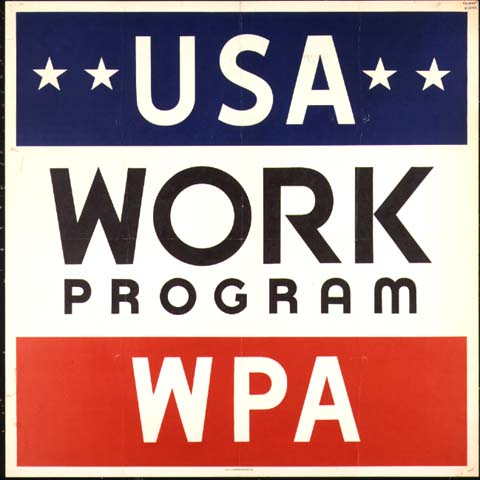Categories
Tags
- "I Have a Dream"
- 1906
- 1929
- 1960s
- 1963
- African-Americans
- African American
- Baby Boom
- Bill Clinton
- Birmingham
- Child Labor
- civil rights
- Civil Rights Movement
- Cold War
- communism
- Discrimination
- economics
- End of Segregation
- finance
- flappers
- Freedom
- Great depression
- Hilary Clinton
- human rights
- impeachment
- Japanese Internment Camp
- LAPD
- Martin Luther King
- Martin Luther King Jr.
- music
- Post WWII Events
- President
- prohibition
- racial discrimination
- Racism
- Richard Nixon
- rights
- segregation
- slavery
- Soviet Union
- Wall Street
- War
- Woodrow Wilson
- World War I
- WWI
Category Archives: 1932-1940
The New Deal

The Works Progress Administration (WPA) was one of the New Deals most ambitious programs. This program helped to put millions of people back to work by funding projects for highways, roads, school buildings, and sewage plants among the many other public works projects during the Great Depression Era. The poster above was frequently displayed nearby one of the funded work sites.
The New Deal was a group of economic programs implemented during president Franklin Delano Roosevelt’s first term in office. These programs were focused responses to the effects of the Great Depression. Overall, the programs can be summarized as focusing on the “3 Rs” which were relief, recovery, and reform. A number of programs were passed which still effect us today including the Glass-Steagall Banking Act and the Social Security Act.
The above image was taken from the National Archives.
The 21st Amendment
 On December 5th, 1933, prohibition on alcohol beverages by 18th amendment was ended. The 21st amendment is the only amendment ratified by state conventions instead of state legislatures which reflects the influence of deep-rooted politics inside the lawmakers.
On December 5th, 1933, prohibition on alcohol beverages by 18th amendment was ended. The 21st amendment is the only amendment ratified by state conventions instead of state legislatures which reflects the influence of deep-rooted politics inside the lawmakers.
Photo: http://www.albany.edu/~wm731882/21st_amendment_final.html
Posted in 1932-1940, June 7 assignment
Tagged 21st amendment, politics, prohibition
Comments Off on The 21st Amendment


